SPEAKERS

Prof. Dr. Christian Kapteyn
As Professor of Digital Business and Head of the M.Sc. Study Program "Digital Transformation Management", Christian is teaching students at SRH Berlin University of Applied Sciences at SRH Campus Hamburg. He is managing the SRH University task force for "Generative AI in Higher Education" and has a keen interest in the practical applications of Generative AI in the teaching context and in business.

Dr Cris Bloomfield
Dr Cris Bloomfield is a Senior Industry Architect within Microsoft who works with Higher Education institutions across Europe, Middle East and Africa. With past roles in the financial services and retail industries, he is also former academic researcher and lecturer who went on to leadership roles in IT Services at a number of Russell Group universities. He has over 25 years of broad experience working in Education and has led large scale infrastructure modernization, digital innovation initiatives and new build projects across a wide range of technologies. Cris is currently supporting a number of current digital transformation initiatives that are looking to leverage Copilot and generative AI capabilities in both teaching and learning and professional services contexts.

Emil Reisser-Weston MSc MEng
Emil founded Open eLMS in 2003 and has been the creative driving force behind the company. Emil is a qualified ergonomist and has been working with human centred design, human behaviour modelling and artificial intelligence since the early 90s.
Emil is a holder of learning product awards from IOSH and Brandon Hall and is designer of the global top rated Learning Management System and eLearning authoring systems on Slashdot and Sourceforge.

Keith Quille
Keith is a Senior Lecturer in the School of Enterprise Computing and Digital Transformation in TU Dublin. Keith is the project coordinator for TU862 and also lectures on the EU-funded MSc - Human Centered AI Masters, teaching Human Centric Deep Learning. Keith is an NVIDA-certified instructor for Deep Learning and large language models. Keith’s PhD was the development of an AI system to identify students who may be at risk of failing or dropping out of introductory programming courses, which is now being deployed on six continents. In addition to education, training, and development of trustworthy production AI models, Keith also does significant work in education. Keith was a member of the EU Expert group on the use of AI and data in education and training, resulting in guidelines that are being used in every school and university in the EU (this was part of the Digital Education Action Plan DEAP).
Keith was also a member of the Stakeholder Consultation Group Member for the European Commission study on Policy options for digital education content in the European Union (2022-23). Keith is a PI for the TU Dublin research group, CSinc which has SFI and Department of Education Funding to deliver computing education nationally, reaching ≈ 12,000 students in 150 schools, where AI education is a core component. Keith was commissioned by the NCCA to develop resources for the Leaving Certificate Computer Science subject, he also wrote the book for this subject and is a member of the NCCA development group for the new primary school subject area STEM.

Professor Gunter Saunder
With 40+ years in higher education, Professor Gunter Saunders serves as Associate Director of Digital Engagement and Library Services at the University of Westminster. Formerly a Microbiologist and Genetic Engineer, he transitioned to supporting digital learning over 15 years ago. Now leading a team of 100+ in Professional Services, he works to help students and colleagues leverage technology for enhanced learning and working experiences. A Principal Fellow of the Higher Education Academy, he leads the University of Westminster's strategy on Generative AI, fostering workshops and discussions to explore its diverse applications in education and work.
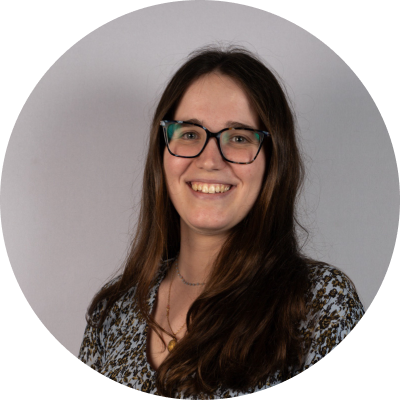
Marta de la Cuadra Lozano
Marta is a student in the Master's program in Human Centered Artificial Intelligence at Technological University Dublin and currently works as a MPE Sort Product Development Engineer intern at Intel. She is also a Lecturer of Mathematical Logic at Estalmat, a project of the Spanish Royal Academy of Sciences, at University of Valencia. Her work combines academic theory with industrial experience, with a particular interest in the ethical dimensions of Artificial Intelligence. Moreover, she is passionate about advancing the role of women in STEM.
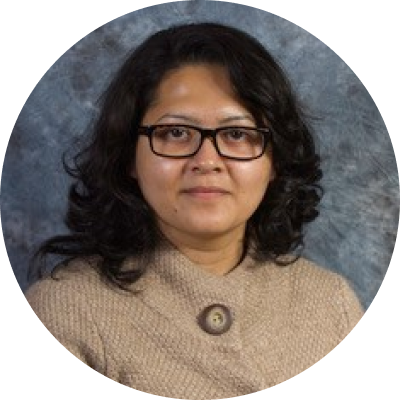
Liza Farhana
Lecturer in Computing Sciences, University of East Anglia

Sandra Abegglen
Sandra Abegglen is a Researcher in the School of Architecture, Planning and Landscape at the University of Calgary. She is an experienced educationist with a strong interest in collaboration, co-creation and social justice. Her research focuses on in online education, hybrid pedagogy, academic literacies, creative learning and teaching methods, inclusion, and identity. She is the Principal Investigator for the Playful Hybrid Higher Education project and TALON, the Teaching and Learning Online Network - and she holds the project lead for several other education research projects. Sandra has written about her research and teaching practice in a variety of books and journals, and she has presented her work nationally and internationally. She has been awarded for her inter-disciplinary, multi-stakeholder education work.
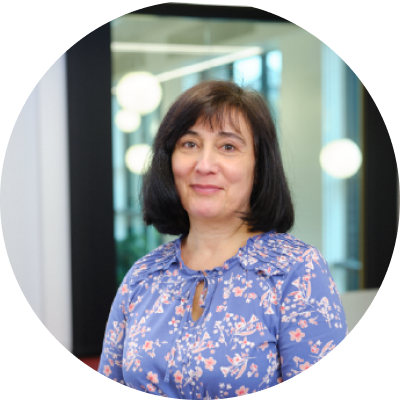
Dr Chrissi Nerantzi
Dr Chrissi Nerantzi is a Professor in Creative and Open Education in the School of Education at the University of Leeds in the United Kingdom. She contributes to the MA in Digital Education, is a Senior Lead of the Knowledge Equity Network and the Academic Lead for Discover and Explore. Chrissi has initiated the development of open educational resources and international open and boundary-crossing professional development initiatives for educators, students and the wider public with colleagues from a range of institutions and countries (examples include @openfdol, @byod4l, @lthechat, #creativeHE) many of which have been sustained over the years.
Chrissi is a global accreditor of Advance HE, an Adjunct Professor at the University of Nova Gorica in Slovenia and an advisory member of the global UNESCO supported Open Education for a Better World (OE4BW) Programme and collaborates with higher education institutions in different countries. Chrissi’s research interests are in creativity, openness, collaborative learning and communities and in which she has published widely. She is a National Teaching Fellow 2015 and a Principal Fellow of the Higher Education Academy, the ALT Learning Technologist of the Year 2017, received the GO-GN Best Open Research Practice Award 2018, the OEGlobal Open Innovation Award 2021, the Collaborative Award for Teaching Excellence in 2022 by Advance HE and in 2023 the Open Education Champion Award from the National Teaching Repository.
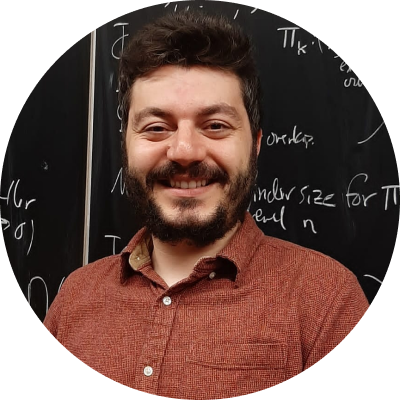
Ozan Evkaya
Ozan Evkaya (FHEA) is a full-time faculty member at the School of Mathematics (University Teacher in Statistics) and has been teaching mathematics students in higher education across different subjects.
Ozan has been teaching in higher education across different subjects in UK and Turkey for almost 6 years. Outside of university teaching, Ozan is a co-organiser of Technology Enhanced Mathematical Sciences Education (TEMSE) seminars in School of Math, EdinbR R-users group and member of RSS Edinburgh local community. In addition to his teaching role in the academia, he has been one of the partners of Bosphorus AI, a Turkey based artificial intelligence company, since 2022.

Jacqueline Gasser-Beck
Jacqueline Gasser-Beck, lic. iur. EMBA HSG is heading the "Teaching Innovation and Media Lab" at the University of St.Gallen. Her team supports lecturers in developing innovative digital teaching formats.
After studying law at the University of Zurich, she worked as a researcher at the University of St.Gallen and at Harvard Law School before working as executive director for the Programs in Law at the HSG for four years. In 2008 she joined "Swissnex Boston", developing events and projects in the field of science communication for Swiss universities. After this second period abroad, she returned to Switzerland to become the executive director of the "Institute for Law and Legal Practice". While working in the field of continuing education for lawyers she developed her passion for exploring new ways of teaching, finally leading to establish the Teaching Innovation Lab at the University of St.Gallen.
Jacqueline Gasser-Beck has more than 20 years of experience in the field of Higher Education and is a creative tech enthusiast with a passion for Generative AI.

Mark Grattan
MA student, University of Leeds.
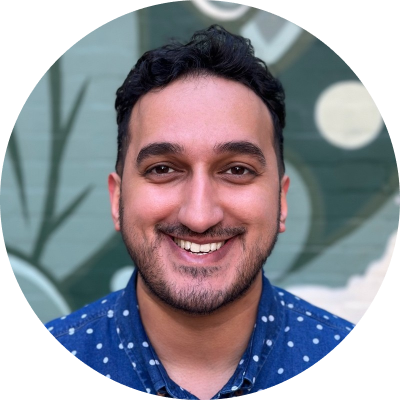
Manjinder Kainth
Manjinder Kainth is a theoretical physics PhD graduate. It is during his studies he encountered issues associated with providing assessment and feedback at scale. As a result he and his co-founders created Graide - an AI enhanced grading platform. It is used in many universities and vocational education programs worldwide. Graide can be used for mathematics, short text, essays and reports.